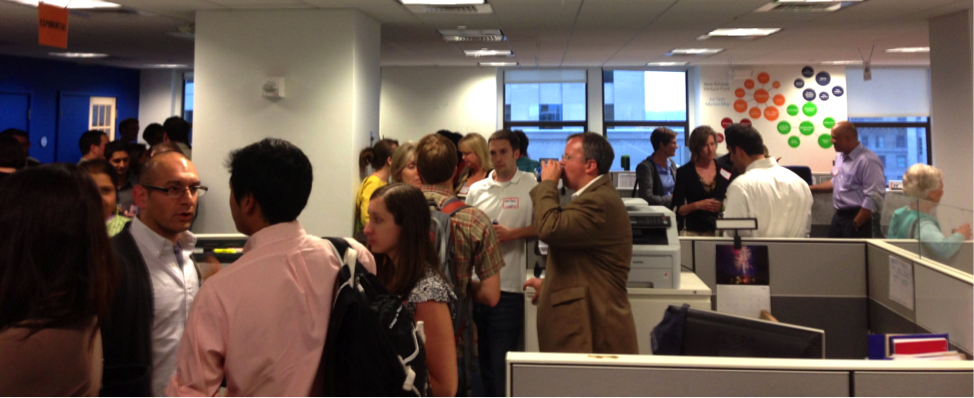
Long gone are the days of Steve Jobs's hacking away in his garage. Founders of today face a myriad of choices for their "home base." Accelerators are doubling annually; co-working spaces saw an 83 percent increase compared to last year, and start-up classes brand themselves as new MBA programs. Startup "homes" keep mushrooming in traditional hotspots of innovation, such as San Francisco, Boston, and New York City, as well as up-and-coming entrepreneurship centers, such as Boulder, New Orleans, Kansas City, and Austin, TX. Given all this variety, how can start-ups choose the right home base?
To make a decision, consider what matters most for your start-up. Depending on the size of the founder's network, preferred model of financing, and the composition of the team, some perks become more important than others. In general, 1) accelerators and incubators offer most overall support; 2) co-working spaces are best fit for networking and cash-positive businesses; 3) start-up classes are a great way to build the knowledge base and meet potential teammates.
1.Need money and mentorship? Accelerator
The best accelerators offer access to the network of alumni, investors, and mentors, as well as coach start-ups as they grow. Accelerators also provide perks (i.e. hosting, legal services, banking, physical space) and seed funding (usually in the ballpark of $20K - $50K) in exchange for company equity (usually between 5 percent and 7 percent). Some accelerators have industry specialization, such as Healthbox and Rockhealth for healthcare, or LearnLaunchX for education (all in Boston). The best ones tend to be quite selective (getting into Y-Combinator is no easier than into Stanford MBA).
Boston-based Smart Scheduling participated in the Healthbox accelerator last fall. Christopher Moses, the company's CEO, says the accelerator delivered tremendous benefits for connecting with hospital systems and mentoring: "As the primary sponsor of Healthbox, Blue Cross Blue Shield provides us access to top-tier hospital systems participating in the Alternative Quality Contract - BCBS's private payer model for incentive payments tied to high-quality care. The team at BCBS moderated a meeting with executives at Steward Medical Group, who were keen on maximizing access to care for their patients by streamlining operations to find new efficiencies."
2. Need office space and wide network? Co-working space
Co-working spaces, also called innovation centers, or entrepreneurship campus, provide flexibility and non-intrusive networking opportunities for start-ups. They typically charge rent (per desk or per person) and do not lock companies into leases. Cambridge Innovation Center (CIC) and WorkBar host weekly events, like the famous Venture café mixer. Other reasons to consider co-working space are industry focus, occasional classes, mentor office hours, and of course free coffee, the fuel of innovation.
Our start-up Project Lever is currently bootstrapped with the first customer money, so we can afford paying a bit of cash for the connections with like-minded entrepreneurs, industry leaders, and the professionalism of the office space. Our first office was MIT Beehive, which provided the best community of like-minded hackers; once it closed, we moved to Exponential Techspace, an EdTech focused entrepreneurship campus in Boston Back Bay, founded by Hakan Satiroglu, one of Boston's leaders in educational technology.
3. Need to brush on theory? Start-up Classes
Despite all the myths you heard about start-up founders, not all of us think we know everything! Boston's Startup Institute teaches the basics of networking, coding, and marketing. Many universities also celebrate entrepreneurship by setting up the likes of MIT Beehive, Harvard's iLab, or UMass Boston Venture Development Center where students can learn from experts.
Sebastian Fung of Itsdapper met his co-founders at the Boston StartUp Institute and grew the idea there. "There were group sessions with all the tracks, such as product development, software development, business development, and technical marketing, where founders would talk about their experience as well as track-dependent sessions", he says.
Conclusion: Integrated Start-Up Resources Are the Future
In considering various models, start-up founders have many choices for growing their business. For early funding and industry connections, accelerators are the way to go. For office space and general networking, co-working spaces are the best alternative. To brush up on business or coding basics, start-up classes offer access to knowledge and to people.
However, there are few clear-cut distinctions between these models. Lately, they have been moving towards providing integrated suite of services to satisfy the needs of companies as they continue to change and grow. For example, Exponential s planning to offer office hours to access to education industry mentors; Mass Challenge accelerator does not take equity; Harvard i-Lab provides access to mentors, networking, recruiting events, in addition to classes. Perhaps the entrepreneurship space of the future is a blended model with an industry focus, which allows entrepreneurs to pick the elements that matter most to them.
What is the right choice for your start-up?
